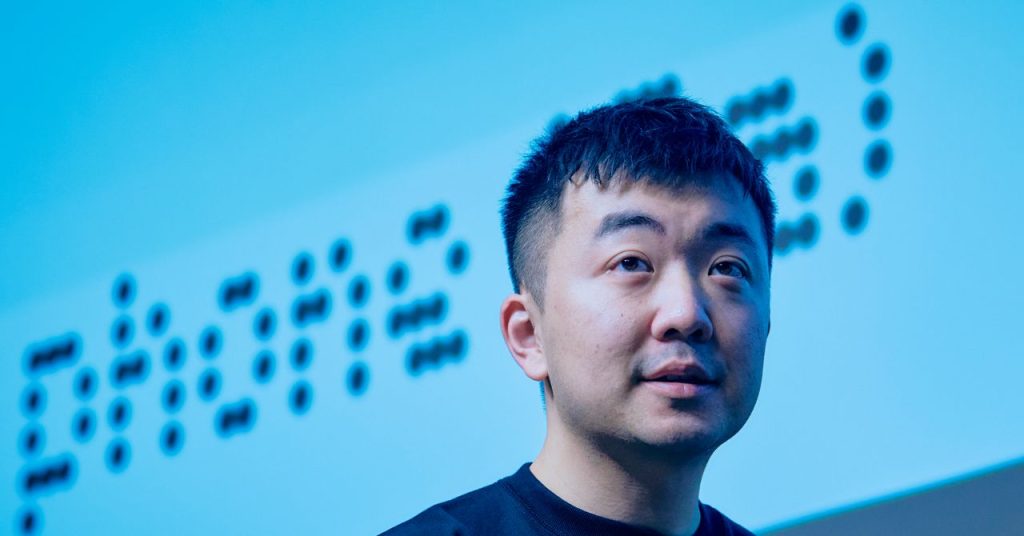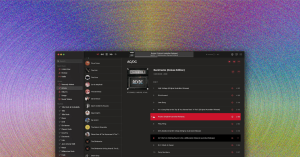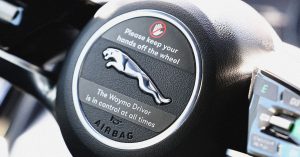Carl Pei Thinks the Phone of the Future Will Only Have One App

May 27, 2025 6:00 AM
Carl Pei Thinks the Phone of the Future Will Only Have One App
All products featured on WIRED are independently selected by our editors. However, we may receive compensation from retailers and/or from purchases of products through these links.
In the fiercely competitive Android smartphone market, British startup Nothing is trying to do things a little differently—from its product design to its pricing strategy. “Remember a time where every new product made you excited?” the company asks on its website. “We’re bringing that back.”
There’s more to Nothing than just smartphones these days, though. It’s got a range of earbuds for a variety of budgets and uses, and recently teased that it’s developing its first pair of over-ears—not long after announcing a new partnership with British hi-fi brand KEF. It has also developed a line of products under the CMF by Nothing sub-brand, which produces even lower-priced products, including a $69 smartwatch. But how does a brand that’s keen to be disruptive remain competitive in an industry that’s struggling for innovation? We asked its founder, Carl Pei.
WIRED: In March, you released your latest smartphone, the Nothing Phone (3a). What do you think are Nothing’s strengths, compared to what’s out there already?
Carl Pei: First of all, we are the only startup in the industry, so we actually have a lot of disadvantages. We are one of the smallest teams in the industry, so we have a fragile supply chain and low cash flow.
However, I think where we’re stronger is our creativity. We have to be—if we don’t have industrial scale, we need creativity to remain competitive in this industry.
Another advantage is the size of the manufacturers we compete with. When you’re very big, you have to target all customers—young, old, and everyone in between. We, on the other hand, can focus on a specific group of users. Like creatives. The new “Essential Space” feature [on Nothing Phone 3a] is aimed at them, for example, to help them store and organize new ideas as they emerge.
And then there’s also our software. The smartphone market is becoming very boring. We believe we are the only ones who can make it “fun” again.
What does creativity mean to you?
Creativity is not only about design, fashion, or art, but about solving problems.
Humans have a remarkable ability to connect different pieces of information to solve new problems. I think software engineers can be extremely creative. Now, in the age of AI, human creativity is even more important. In the long term, when humanity becomes a civilization that expands into space, it’s creativity that’s going to make us more competitive in the universe.
That is why we want to make technology “fun” again, to help inspire human creativity. Personally, I was very inspired by Apple when I was younger—the first iPod, the first iPhone—that’s the reason I’m in this industry.
But now the creative companies of the past have become very big and very corporate, and they’re no longer very creative. They’re no longer inspirational for the younger generation. So we are trying to bring that back.
We’re also trying to be very transparent and human in our business efforts. For example, if you watch our YouTube videos, you’ll see that we try to introduce the Nothing team, like our designers and software developers, so that you can get to know them.
This is our way of doing things and our way of thinking. We hope it will encourage more young people to express their creativity.
Is your strategy working? How’s business?
Looking back on the last four and a half years, I think it is working. We face a lot of problems on a daily basis, but we cannot survive in this industry if we follow the same strategies as other companies. We have to be different.
And the business is growing rapidly. Last year, we grew about 150 percent. However, we still only reached about 0.1% share of the global market, so there is plenty more to do.
How do you plan to get there? What’s the growth plan?
I think the big trend we are all seeing right now is AI, and I think everyone is very stressed wondering what kind of AI functions they should launch. But I think they’re looking at it wrong.
Before the introduction of the iPod, it was common knowledge in the industry that an MP3 player with a hard drive would be the next big thing. At the time, companies such as South Korea’s iriver and Singapore’s Creative had also launched MP3 players with hard drives, but iPod became the market leader because it got everything right.
Apple had the best design in the iPod, it had the best interface with the scroll wheel. It had the best integration of hardware and software, with iTunes for music management, and it had the best business model. All of a sudden, you could buy one song for $1 instead of having to buy the whole album! So it had the best overall package.
I think there’s a lot of similarities with AI today. We all know it’s the next big thing, and everyone is trying to figure out exactly what’s important there. But all we want to do is create the best product for our users. It is not about working quickly to create something and shoving AI into it to tick a box.
If you look back, the iPod was not launched as “an MP3 player with a hard disk drive.” The hard disk drive was merely a means to a better user experience. AI is just a new technology that enables us to create better products for users. So, our strategy is not to make big claims that AI is going to change the world and revolutionize smartphones. For us, it’s about using it to solve a consumer problem, not to tell a big story. We want the product to be the story.
In that respect, Apple today is very different from the Apple when I was younger. Last year, they told a very big story about Apple Intelligence. Now, a year later, it’s not much more than some generated emojis. So it’s made consumers very skeptical.
Do you think more can be done with AI?
I think the way we use devices will change in the future. In the short term, I don’t think we will see new forms of hardware really taking off. People are trying with different things like smart glasses and the Humane AI Pin, but I don’t believe in these form factors right now, because the market is so small. Smart glasses are about 1 million units per year, and devices like the AI Pin are about 5,000 units per year.
A smartphone is like 1 billion units per year. It is the largest and most diverse market. We use smartphones for everything, and the key to good AI is data. I don’t think any other device will be as important for AI as the smartphone for the foreseeable future.
And how do you see smartphone use evolving in that time?
It will change dramatically. I believe that in the future, the entire phone will only have one app—and that will be the OS. The OS will know its user well and will be optimized for that person.
However, we need to pay close attention to user privacy. We need transparency in how data is handled and clarity about whether it resides in the cloud or is stored on the device. Users must also be able to control who has access to their data, and of course, they must be able to delete it.
The next step after data-driven personalization, in my opinion, is automation. That is, the system knows you, knows who you are, and knows what you want. For example, the system knows your situation, time, place, and schedule, and it suggests what you should do.
Right now, you have to go through a step-by-step process of figuring out for yourself what you want to do, then unlocking your smartphone and going through it step by step. In the future, your phone will suggest what you want to do and then do it automatically for you. So it will be agentic and automated and proactive.
The ultimate benefit to the user is that they will spend less time doing boring things and more time on what they care about. But to get there, we need to take it one step at a time. At this point, if we said, “We have eliminated apps from smartphones,” no one would buy it.
So we have to ship a little bit, look at the data, look at the feedback, iterate, and then ship again. Gradually make suggestions over and over again. We could do this quicker, but we need to bring the user with us on the journey.
How long do you think it will take to realize such a vision?
I would say seven to 10 years. I think many people would like to see it happen sooner, but in reality I think people love using apps, so I don’t think it will happen that fast.
What kind of company will Nothing be by then, and what kind of products will it offer?
At that point, the OS will be fairly mature and connected to all the important devices. And I think there will be more forms of hardware that are important to users.
The market for smart glasses is very small at this point, but seven years from now it will be a big category. There might be other product areas that will catch on, but we are researching which product categories to start planning for.
And hopefully, on an emotional level, we can also offer something to the world, because the last few years have not been very positive. All the companies that were once creative are now big corporations, everyone is afraid of AI, the economy is bad. There’s war. In the midst of all this, I hope that we can bring some positivity and inspiration to the world.
Source: https://www.wired.com


